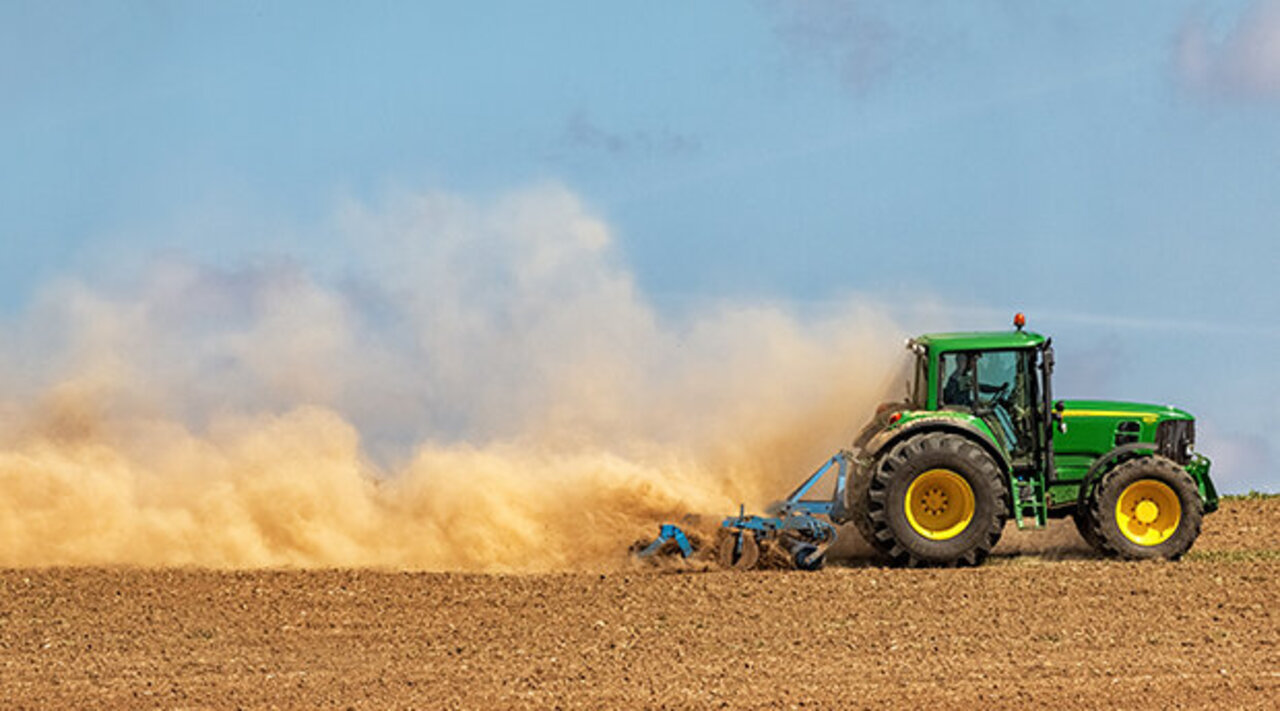
Project
The impact of climate change on agricultural yields and cropland (KlimErtrag)

The impact of climate change on agricultural yields and cropland
The dry years in the past have brought climate change induced impacts on agricultural yields into the focus of public attention. But, how does climate change effect yields and what follows for adaptation strategies?
Background and Objective
The joint research project together with the Deutsche Wetterdienst (DWD), the Julius Kühn-Institute (JKI) and the Leibniz Centre for Agricultural Landscape Research (ZALF) generates model-based, quantitative and spatially disaggregated simulations of potential changes in yields of the most important German crops until the mid of the century. It does not only account for yield impacts from continuous changes in climate parameters but also the impact of an increased frequency and intensity of extreme weather events. The generated information about the potential regional and national yield effects provides the basis for developing effective adaptation strategies.
Approach
The interdisciplinary project team will focus on the following research question:
- How do agricultural yields change in Germany for the most important crops for selected climate change scenarios until 2050 (by considering average changes as well as changes in extreme weather events)?
- In case results of research question 1 indicate substantial decreases in yields, which options for adaptation measures and policies exist?
Different Agro-ecosystem simulation models will be used to quantify the impact of climate change on agricultural yields until the mid of the century. The changes in meteorological and agri-meteorological parameters will be integrated into the analyses by using the results of simulations of climate change scenarios of the DWD references ensemble. In addition, in order to identify the most relevant extreme weather events, different approaches will be used to quantify the impact of different extreme weather events on yields in the past. In a next step, the changes in frequency and intensity of the most relevant extreme weather events until the mid of the century will be quantified by using the simulation of the DWD reference ensemble. The synopsis of results provides the basis for an overview of potential options for climate adaptation in agriculture.
Thünen-Contact

Involved Thünen-Partners
Involved external Thünen-Partners
- Julius Kühn-Institut - Bundesforschungsinstitut für Kulturpflanzen (JKI)
(Quedlinburg, Braunschweig, Groß Lüsewitz, Kleinmachnow, Deutschland) - Deutscher Wetterdienst (DWD)
(Offenbach, Deutschland) - Leibniz-Zentrum für Agrarlandschaftsforschung (ZALF) e.V.
(Müncheberg, Deutschland)
Duration
1.2021 - 3.2022
More Information
Project status:
finished
Publications
- 0
Söder M, Berg-Mohnicke M, Bittner M, Ernst S, Feike T, Frühauf C, Golla B, Jänicke C, Jorzig C, Leppelt T, Liedtke M, Möller M, Nendel C, Offermann F, Riedesel L, Romanova V, Schmitt J, Schulz S, Seserman D-M, Shawon AR (2022) Klimawandelbedingte Ertragsveränderungen und Flächennutzung (KlimErtrag). Braunschweig: Johann Heinrich von Thünen-Institut, 234 p, Thünen Working Paper 198, DOI:10.3220/WP1659347916000






